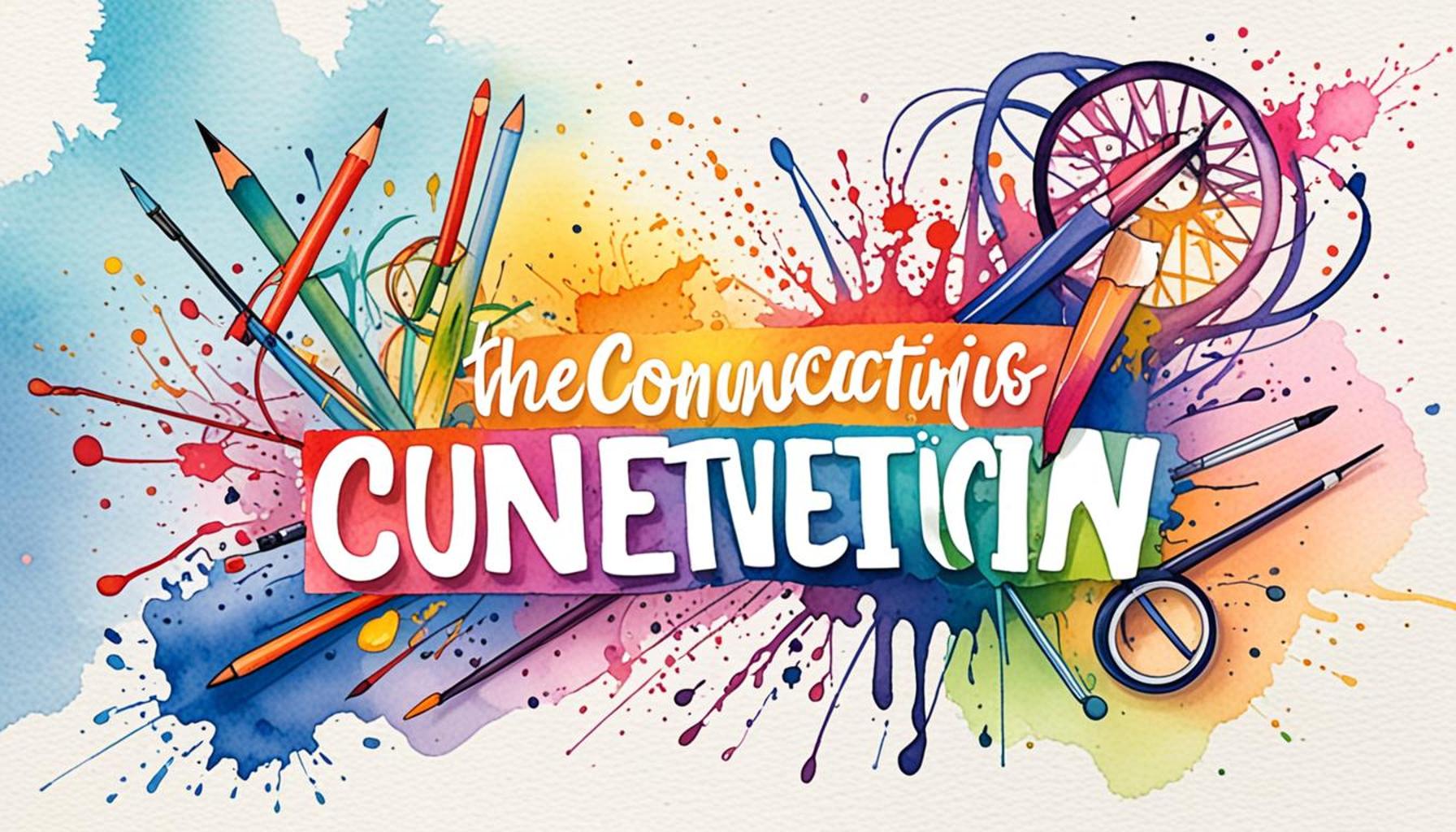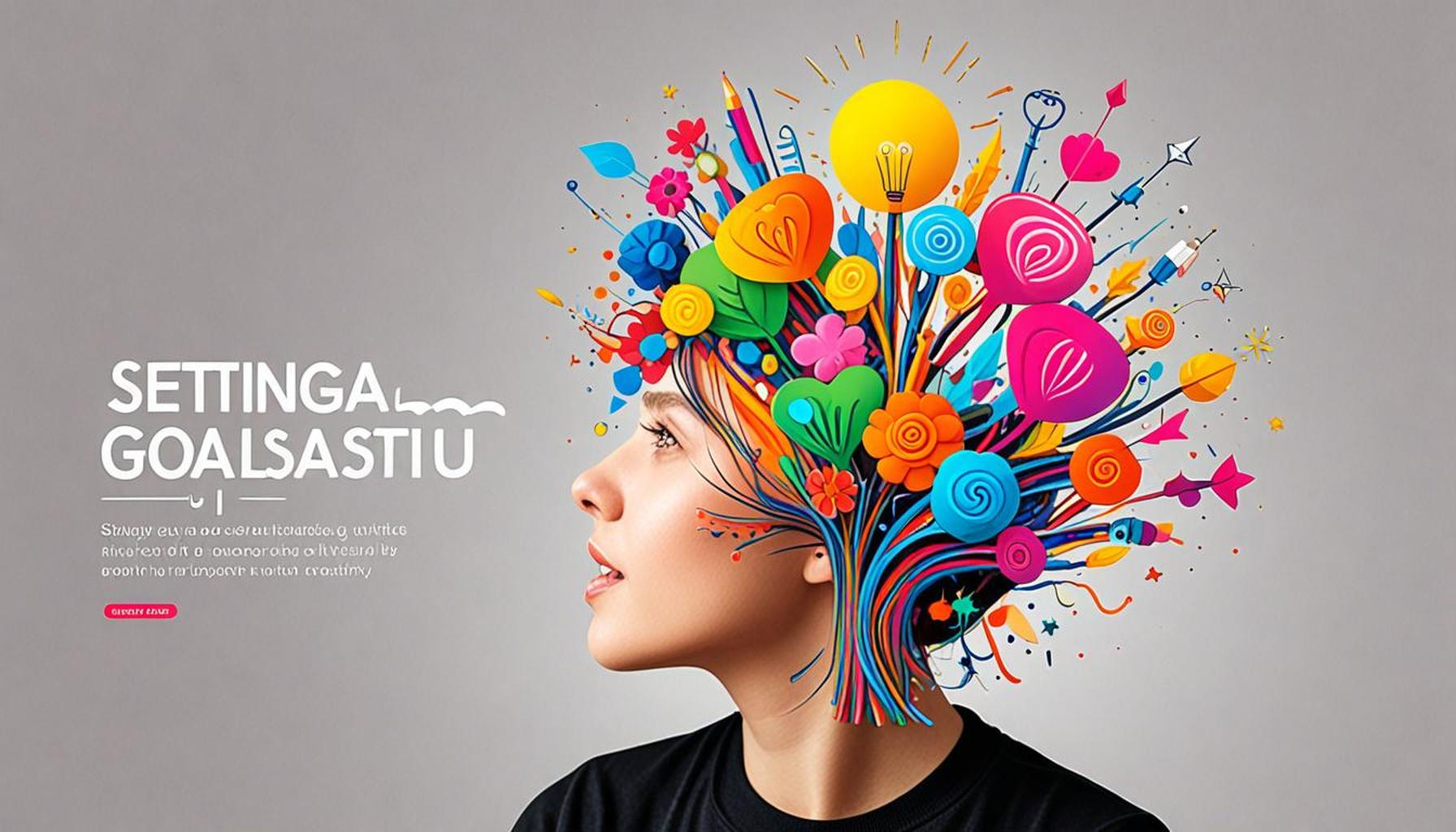How Self-Efficacy Influences the Goal-Setting Process

The Significance of Self-Efficacy in Personal and Academic Success
In an ever-evolving society laden with ambitions, grasping the intricacies of self-efficacy stands paramount. This psychological concept, pioneered by psychologist Albert Bandura, encapsulates an individual’s belief in their capacity to execute tasks and to realize desired outcomes. Such self-belief decidedly shapes not only the manner in which goals are established but also how fervently they are pursued.
When individuals nurture a robust conviction in their ability to succeed, they typically demonstrate several positive behaviors:
- Set more challenging goals: A confident individual will not shy away from aiming high. For instance, a Nigerian entrepreneur might aspire to not just launch a small business but to create a substantial enterprise that impacts the local economy.
- Persist in the face of obstacles: Challenges are a part of any journey. A student facing difficulties in mathematics might continue to seek help and practice rather than giving up.
- Experience greater motivation: High self-efficacy fuels intrinsic motivation as the individual recognizes that their efforts can yield tangible results.
For instance, consider the case of a university student in Nigeria who believes in their academic excellence. This student is more likely to strive for high grades, participate actively in class discussions, and seek internships to enhance their practical knowledge. This conviction leads to a rewarding cycle, where each success reaffirms their self-efficacy and propels them towards even greater achievements.
On the contrary, individuals with low self-efficacy often grapple with various limitations that can stifle their potential:
- Avoidance of goal-setting: Lacking a belief in their capabilities, individuals might refrain from setting any goals at all, resulting in stagnation.
- Giving up easily: Faced with challenges, such individuals are more likely to surrender, discouraging future attempts at achievement.
- A diminished sense of achievement: Without setting and accomplishing goals, their self-worth can diminish, creating a negative feedback loop.
Research underscores that fostering a strong sense of self-efficacy leads not only to enhanced performance but also to heightened satisfaction across diverse areas, including education, career, and personal relationships. In Nigeria, where they are navigating an educational environment that often presents unique challenges, students and professionals alike can significantly benefit from understanding the impact of their self-belief on goal-setting.

Furthermore, when individuals actively develop strategies to bolster their self-efficacy—such as setting incremental goals, seeking constructive feedback, and sharing their achievements with mentors—they are inclined to create a roadmap for sustaining success. Ultimately, delving into how self-efficacy influences goal-setting equips individuals with vital insights to cultivate their path toward accomplishment.
SEE ALSO: Click here to read another article
The Connection Between Self-Efficacy and Goal-Setting
Understanding the relationship between self-efficacy and the goal-setting process reveals critical insights that can enhance personal and academic ventures. When individuals possess a high level of self-efficacy, they perceive goals not as unattainable dreams but as feasible challenges that can lead to personal growth and achievement. This belief system is foundational in determining the types of goals one sets and how diligently they pursue them.
At the core of effective goal-setting lies the ability to establish specific, measurable, attainable, relevant, and time-bound (SMART) goals. Research indicates that individuals with high self-efficacy are more likely to create SMART goals that align closely with their aspirations. For instance, a Nigerian student aspiring to improve their academic performance may set a goal to achieve a specific GPA by the end of the semester rather than merely wanting to “do better.” This clarity arises from their confidence in their capabilities, guiding them to employ effective strategies for achieving these objectives.
Moreover, self-efficacy plays a pivotal role in how goals are approached. Individuals with a strong sense of self-efficacy tend to:
- Break down larger goals into manageable steps: This makes overwhelming tasks feel achievable. A budding entrepreneur in Nigeria might start by developing a business plan before securing funding.
- Embrace feedback: Individuals confident in their abilities are more open to constructive criticism, using it as a tool for refining their strategies.
- Visualize success: High self-efficacy boosts the practice of visualization techniques, allowing individuals to foresee their accomplishments, which reinforces their motivation.
On the contrary, those struggling with low self-efficacy often set ambiguous or easily dismissible goals, leading to a cycle of frustration and disengagement. A student who doesn’t believe they can excel might merely aim to pass exams rather than strive for excellence. This lack of serious ambition further entrenches their beliefs, creating hurdles to future growth and achievement.
Furthermore, the influence of self-efficacy on goal-setting extends beyond individual aspirations. In collaborative environments, such as academic groups or workplace teams in Nigeria, members’ self-beliefs shape the collective goals set by the team. A team composed of members who collectively have high self-efficacy is likely to set ambitious targets, taking risks that could lead to innovative solutions. Conversely, teams with individuals lacking confidence may set minimal expectations, leading to uninspired outcomes.
Ultimately, self-efficacy acts as a powerful catalyst in the goal-setting process, guiding individuals to define their ambitions clearly, pursue them vigorously, and celebrate their achievements. Understanding these dynamics allows individuals—from students in Nigerian universities to professionals setting career milestones—to harness their self-efficacy effectively, paving pathways toward success.
How Self-Efficacy Shapes Goal Commitment
Self-efficacy fundamentally affects the way individuals commit to their goals. A person who believes in their abilities is more likely to set ambitious goals and persist even in the face of challenges. This phenomenon can be attributed to the cognitive processes that are activated when one has a strong sense of self-efficacy. For instance, high self-efficacy leads to a greater expectation of success, inherently increasing one’s motivation to accomplish specific objectives. Furthermore, individuals with high self-efficacy engage more thoroughly in planning and strategizing their paths to achievement, often breaking down complex goals into manageable tasks. This systematic approach enhances their ability to cope with setbacks, as they are more inclined to view challenges as growth opportunities rather than insurmountable obstacles.To illustrate, consider educational settings where students with strong self-efficacy strive for higher academic performance. They are more likely to engage in effective study techniques, seek help from instructors, and maintain their focus, ultimately leading to stronger achievement outcomes. In contrast, those with lower self-efficacy may avoid challenging subjects, fearing failure and underperforming as a result.Moreover, the interconnectedness between goal-setting and self-efficacy doesn’t merely exist in personal ambitions; it extends to professional environments. Employees who believe in their skills and competencies are likely to set higher career-related goals, thereby fostering a workplace culture centered around growth and innovation. This dynamic can lead to not only individual advancement but also collective success within organizations.Ultimately, enhancing self-efficacy can be achieved through various means, such as setting and achieving smaller goals, seeking positive feedback, and observing role models who demonstrate desirable behaviors. Increased self-efficacy can thus create a reinforcing cycle, where small successes compound over time, leading to higher goals and more significant achievements.
| Category | Benefits |
|---|---|
| Enhanced Goal Clarity | Individuals set clear, attainable goals that lead to success. |
| Increased Resilience | Those with high self-efficacy bounce back from setbacks and view failures as learning opportunities. |
The implications of self-efficacy on goal-setting are profound, shaping not only individual trajectories but also influencing how teams and organizations function. Understanding this relationship can help individuals harness their potential and drive toward greater success.
LEARN MORE: This related article may interest you
The Role of Self-Efficacy in Sustaining Motivation
Beyond the initial goal-setting phase, self-efficacy significantly influences the motivation required to sustain effort throughout the journey toward achieving these goals. High self-efficacy individuals approach challenges with a proactive mindset, fueling their persistence even in the face of obstacles. This endurance is critical in complex environments like academia or entrepreneurial ventures in Nigeria, where challenges are abundant and frequently test one’s resolve.
For instance, consider a young Nigerian artist striving to gain recognition in the competitive art industry. A belief in their artistic abilities fosters the resilience to face rejections or criticism. Instead of seeing these setbacks as final, they view them as learning experiences that refine their skills and styles. This mindset, deeply rooted in self-efficacy, not only sustains their motivation but also propels them to explore innovative avenues for showcasing their work, whether through online platforms or community exhibitions.
On the other hand, low self-efficacy can lead to a lack of motivation, diminishing the likelihood of following through with set goals. Individuals who doubt their capabilities may find themselves quickly overwhelmed by challenges, compelling them to abandon their ambitions. A Nigerian student struggling with self-confidence might easily yield to the pressure of failing to meet a high benchmark, opting for the path of least resistance instead of striving for excellence.
Goal Adjustment and Self-Efficacy
An important aspect of the goal-setting process involves the ability to adjust goals as necessary—a skill heavily influenced by self-efficacy. Individuals with high self-efficacy view feedback and setbacks as opportunities for recalibration rather than signs of failure. This perspective aids in the ability to modify objectives in ways that maintain motivation and engagement. For example, if a Nigerian entrepreneur finds their initial business plan unfeasible, their confidence in their problem-solving abilities encourages them to pivot and set alternative targets that align better with market conditions.
Conversely, those with low self-efficacy may become discouraged when faced with barriers, often leading to a stiff, inflexible approach to goal adjustment. The inability to alter course in response to challenges can result in stagnant progress and missed opportunities. This illustrates the vital role of self-efficacy; it not only influences the initial motivation to set goals but also shapes the adaptability required to navigate the unpredictable landscape of personal and professional development.
Real-Life Insights from Nigerian Influencers
Real-world examples abound in Nigeria, where influencers across various fields demonstrate the profound impact of self-efficacy in their goal-setting processes. Consider the story of a successful tech entrepreneur who once struggled with a fledgling startup. Their unwavering belief in their technical skills and vision led them to set ambitious goals, ultimately transforming their venture into a thriving business that has inspired many in the tech community. This journey emphasizes that self-efficacy is not merely a personal asset but a catalyst that can inspire collective improvement in communities.
In conclusion, understanding how self-efficacy influences not just goal-setting but also the ability to sustain motivation and adapt plans can help individuals in Nigeria and beyond harness their potential more effectively. By recognizing the symbiotic relationship between self-belief and goal achievement, one can display greater ambition and resilience, paving the way for tangible success in an ever-evolving landscape.
ADDITIONAL INSIGHTS: Expand your understanding here
Conclusion: Empowering the Journey Through Self-Efficacy
In exploring the intricate relationship between self-efficacy and the goal-setting process, it becomes clear that self-belief serves as a pivotal force in determining success. Individuals with a strong sense of self-efficacy are not only more likely to set ambitious goals but also exhibit the resilience needed to tackle challenges along the way. This empowerment magnifies their potential to adapt and evolve, whether faced with setbacks or reevaluating their paths in dynamic environments like Nigeria’s burgeoning entrepreneurial landscape.
Through real-life examples of Nigerian entrepreneurs, students, and artists, we witness how self-efficacy transforms setbacks into stepping stones. By nurturing a mindset that embraces learning from challenges rather than succumbing to discouragement, individuals empower themselves to reach new heights. Furthermore, understanding how self-efficacy facilitates goal adjustment helps in maintaining motivation, encouraging a more robust approach to personal and professional development.
Ultimately, promoting self-efficacy can foster a culture of ambition and resilience across communities. As people begin recognizing their capabilities and viewing their goals as attainable, a ripple effect occurs—one that not only leads to individual achievement but also contributes to societal growth and inspiration. The journey toward success is complex, yet with a belief in oneself, it becomes a voyage of discovery and empowerment, lighting the way for others to follow.


